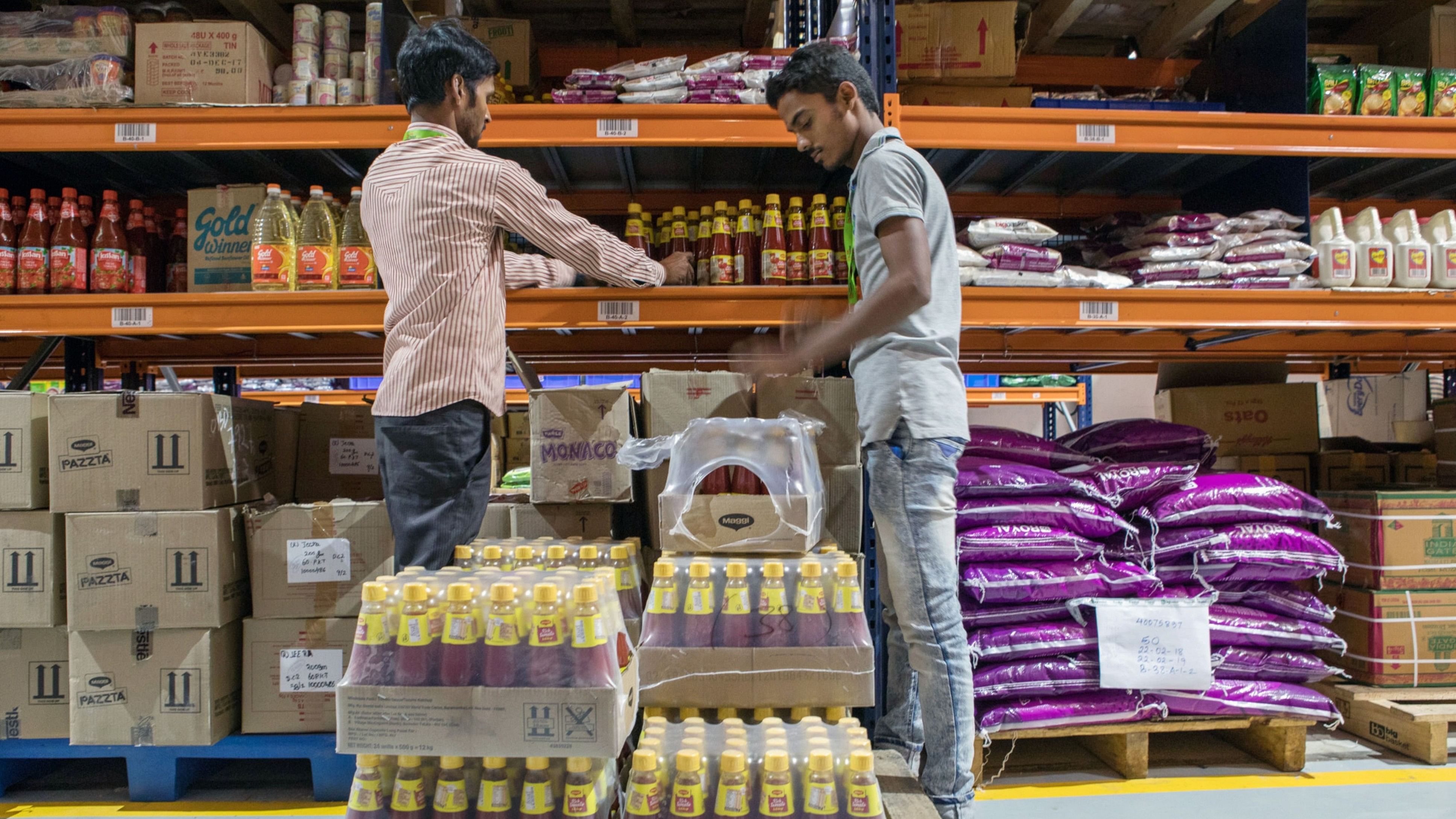
Dark stores are small, localised urban distribution centres used by quick commerce companies for fast delivery. They range in size typically from 2,000-10,000 square feet.
Credit: Bloomberg photo
Bengaluru: There is a glut of quick-commerce dark stores in urban India’s online retail ecosystem as companies seek to expand customer reach, optimise speedy delivery time, and beat competition. This is causing a real estate shift, particularly for traditional uses of ground floors of buildings, to accommodate such dark stores.
“This trend is not only driving up rental rates in prime areas but also encouraging innovative use of space, such as converting underutilised retail spaces into efficient dark stores. We are witnessing a transformation in how commercial spaces are utilised, with a growing emphasis on efficiency and strategic location," said Balbirsingh Khalsa, Executive Director, industrial capital markets, Knight Frank India.
Dark stores are small, localised urban distribution centres used by quick commerce companies for fast delivery. They range in size typically from 2,000-10,000 square feet.
According to an upcoming industry report, between 2023 and 2024, India has seen the addition of at least 5-6 million square feet (msf) across all urban fulfilment segments, out of which quick commerce leads at 2.5-3 msf with dark stores.
As per industry estimates, quick commerce is expected to grow to $5.5 billion by 2025. In 2024, the market is expected to generate revenues of around $3.35 billion.
"As quick commerce gains momentum, the demand for strategically located fulfilment centres is skyrocketing,” observed Khalsa.
"Landlords are finding new opportunities in leasing spaces to dark stores, which offer consistent and often higher rental yields compared to traditional retail tenants," he added.
According to Savills India Research, leasing activity for dark stores has surged in densely populated urban areas, particularly in Bengaluru, Chennai, Mumbai, Pune, and Delhi NCR. However, dark store operators are facing several challenges including traffic congestion, lack of availability of space that comply with regulations such as Fire No Objection Certificate and approved plans, limited availability of supply and proper infrastructure.
Urban fulfilment area demand in tier-II cities is also at a very high pace, said analysts.
Location is key
As to whether quick commerce companies are paying a premium for these spaces or not, most analysts say yes while some disagree. However, it is clear that location is one of the biggest factors that quick commerce companies consider for their dark stores.
“The increasing consumer demand has influenced the rentals associated with these specialised fulfilment centres. Given their strategic locations within urban areas, dark stores command slightly premium rental rates compared to traditional warehouses," said Anshuman Magazine, Chairman and CEO, India, South-East Asia, Middle East and Africa, CBRE.
“The average rental costs for dark stores in India can range from Rs 35- 250 per square foot, with variations depending on the specific city, location, and size of the facility,” Magazine said.
“The demand for real estate is going up because quick commerce outlets are willing to pay a premium of up to 25% more than what somebody for a physical store is willing to pay,” said Harish Bijoor, business and brand strategy expert.
Seshu Kumar, Chief Buying and Merchandising Officer, bigbasket, said that quick commerce companies are not paying a premium since quick commerce dark stores are not open to direct inflow of customers and have a few advantages.
“Dark stores are not located in malls or high streets; availability of car parking is not an important consideration. Dark stores can be located in independent compounds, not necessarily on main roads; quick commerce companies also take stores which have part of the store either in the basement or first floor,” Kumar said.
Bigbasket has quick commerce presence in about 50 cities and is expanding the dark store network in top 25 cities.
Vimal Nadar, Research Head at Colliers, added, “Dark stores could be anywhere, definitely not in grade-A buildings. What would be more important is whether there can be vehicular movement for heavy vehicles for unloading, whether it is closer to residential catchment, the density demographic patterns of the surrounding areas, traffic, internet connectivity.”